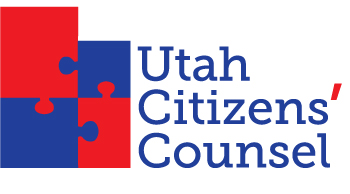Housing and land use policy, which in recent years has seen increasing state encroachment on traditionally local authority, took a somewhat different tack in the 2024 legislative session. Changes were made to the requirements for moderate-income housing plans, other housing programs, and local land use policies and procedures, but these were successfully negotiated so that the Utah League of Cities and Towns (ULCT) supported passage of the two major bills—HB 465 and HB 476.
UCC had expressed concern about HB 13, which created Infrastructure Financing Districts that give developers access to the municipal bond market and allow them to “tax” future homeowners directly for infrastructure costs rather than waiting for local governments to create infrastructure like roads and sewers for a new housing development. This bill passed without opposition from ULCT. The bill was representative of the general approach to housing legislation this year–the creation of new financing mechanisms to incentivize more development of affordable housing rather than reducing municipalities’ ability to impose fees and zoning standards. Two bills, SB 168 and SB 268, authorize cities to create “Home Ownership Promotion Zones” and “First Home Investment Zones,” respectively. These allow, but do not require, cities to use their increased property tax revenue that comes from successful development to incentivize the building of more affordable homes.
The bills that perhaps most concerned local governments were HB 502 and SB 172. Both would have facilitated a massive expansion of gravel mining, especially in Parley’s Canyon, increasing air pollution and using a great deal of scarce water. The Salt Lake County Council had unanimously tried to circumvent the expansion through its zoning ordinances, but the state legislation would have overridden this. By the end of the session, with serious opposition to the bills, SB 172 had stalled, and HB 502 was rewritten to require a study of the need for gravel and other building materials. This study must be finished by November 1, 2024, in time to inform possible new legislation in the 2025 session. UCC will be keeping a close watch on this study and its results.
Another bill that seriously encroaches on local governmental authority—in this case school districts—is HB 29, Sensitive Material Review Amendments. This bill passed both chambers and goes into effect July 1, 2024. If three school districts statewide or two school districts and five charter schools decide to ban a given book from their school libraries, that decision will be imposed on every district, unless the State Board of Education overturns statewide application of the removal requirement. Individual districts had already generated their own community-based procedures for reviewing challenged books, and HB 29 effectively canceled those local procedures under the conditions specified above.
As UCC wrote in its report on Growing Imbalance of Power in Utah Governance, the balance between state and local authority bears constant watching by the public. We continue to monitor this area.
